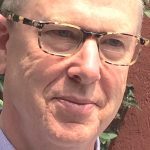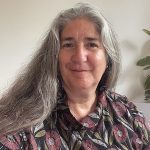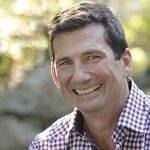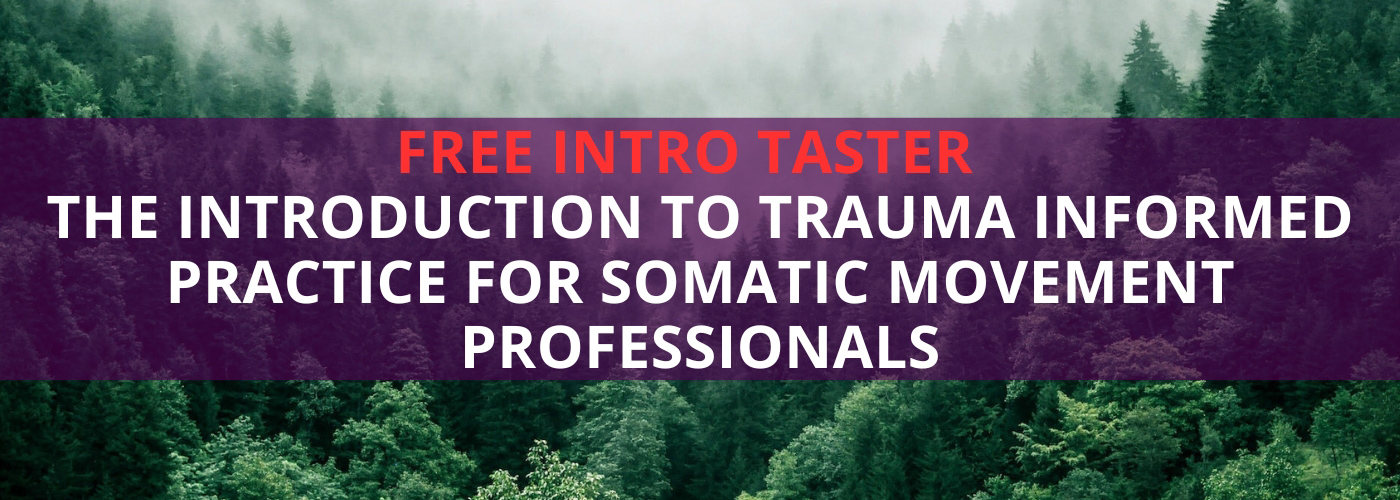A recording of a 2-hour live online introduction to the 72-hour Trauma Informed Practice for Somatic Professionals course.
You can see the full information for the course below. The course is currently in process but recordings may be made available and future dates for enrolment.
FREE
Presented by ISMETA, in partnership with Somatic Experiencing ® International, the new Trauma Informed Practice Course welcomes ISMETA professional members, somatic movement professionals who are eligible to join ISMETA, and students currently enrolled in a somatic movement training program who have completed a minimum of 250 hours of training.
The training addresses the need to be able to recognize, acknowledge, and work with unresolved trauma when working with clients and students, including the question of how a practitioner’s own unresolved traumatic material may support or inhibit their Somatic Movement practice. Participants will gain foundational skills to honor unresolved trauma when working with individual clients or groups of students. The training will introduce the current theoretical framework of the physiology of trauma through experiential learning, based on an amalgam of best practices from some of the leading approaches to trauma resolution.
The training will prepare you to:
• Recognize the symptoms of unresolved trauma in the body, both in yourself and in your client.
• Distinguish the symptoms of unresolved trauma in behavioural and movement patterns.
• Cultivate self-regulation when meeting trauma in others.
• Understand how your own self-regulation supports co-regulation in others and in groups.
• Experience the embodied anatomy of the physiological responses to traumatic events or material.
• Understand and demonstrate the Polyvagal Theory from a Somatic Movement perspective.
• Develop, apply and facilitate trauma-informed theory, skills and information within your professional practice.

Debra Clydesdale
Debra practices Somatic Trauma Resolution and Somatic Movement. She integrates applications including Structural Bodywork, movement, and touch, specializing in early life trauma/attachment resolution, head injuries, medical trauma and chronic complex trauma patterns. After her traumatic material from four traumatic brain injuries surfaced in the 1980s she was guided to meet Peter Levine and Somatic Experiencing ® which profoundly shifted both her personal work and somatic movement/bodywork practice.

Mark Taylor
Mark directs the Center for BodyMindMovement, with ISMETA-approved Somatic Movement Education trainings in the United States, Mexico, Brazil and Chile. The trainings prepare movement professionals, artists and people in the caring professions to facilitate physical, mental, and spiritual transformation in themselves and in others, through embodied anatomy and developmental movement. He is a past Board member and President of ISMETA.

Jane Okondo
Jane is the co-program director faculty for the Diploma in Integrative Bodywork and Movement Therapy an ISMETA Approved Training Program in the UK and Lithuania, teaching Experiential Anatomy and Movement Repatterning, Therapeutic Presence through Authentic Movement and Somatic Psychology. She teaches with the Somatische Akademie in Berlin and offers mentoring, groups and retreats in Continuum and the Discipline of Authentic Movement in the UK and Europe.

Rich Sims
Rich is a Somatic, Embodiment & Mindfulness Educator, Body Awareness and Aikido Instructor who specializes in the areas of stress, fear, anxiety, trauma, depression, resilience, pain and empowerment. He serves on ISMETA’s Executive Committee and is informed by over forty years of study in various somatic, mindfulness and martial arts lineages. He combines the connection between our bodies, minds, emotions and distress responses with methods including Being In Movement® mindbody education, collaborating closely with its founder Paul Linden, MSME.
Module I
August 11 - 13, 2023
9 am – 12 pm + 1 – 4 pm
(Eastern)
Module II
September 8 - 10, 2023
9 am – 12 pm + 1 – 4 pm
(Eastern)
Module III
October 20 - 22, 2023
9 am – 12 pm + 1 – 4 pm
(Eastern)
Module IV
November 17 - 19, 2023
9 am – 12 pm + 1 – 4 pm
(Eastern)
All Modules
Recordings of sessions will be available to review by registered participants

